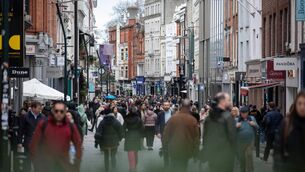Income tax revenues close to matching 2019 levels despite Covid-19 pandemic hit
Exchequer figures published later Tuesday will show that income tax revenues for the year have come close to matching 2019 levels, despite the huge spike in unemployment amid the Covid-19 pandemic, the Irish Examiner understands.
The State collected more than €22.9bn in income tax revenues in 2019 and was braced at the start of the crisis for a huge slide in what is its single largest revenue source as the economy reeled under the pandemic last March.











